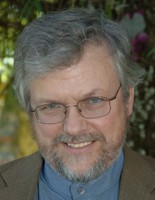Your agency or nonprofit can bring in MindFreedom International director David W. Oaks for a half-day, all-day or two-day version of this workshop. David has evolved this always-changing workshop over 20 years, giving it many times in Europe, South America and North America.

Workshop:
Independent United Activism: Community Organizing for Real Change in the Mental Health System.
by David W. Oaks, Director, MindFreedom International
This is a hands-on, exciting, fun participatory workshop!
This is based on decades of personal experience by the presenter, as well as the lessons from decades of organizing in the movement to change the mental health system, and even other social change movements.
All are welcome, from all walks of life and all opinions! Mental health consumers and psychiatric survivors are especially invited, but a diversity of individuals — including mental health professionals, advocates, family members and the genral public — have all taken and benefited from the workshop.
You may be totally new to social change to participate in the “role plays” in this workshop. If your organization or agency is currently engaged in a community organizing campaign, you can use this workshop to do “real life” strategic planning of issues, actions and goals.
Structure:
The workshop begins with a powerful and brief presentation by David Oaks, including a PowerPoint of photographs of psychiatric survivor activism at work and in the United Nations by the award-winning disability photographer Tom Olin, along with personal photos of movement activity from David Oaks.
We then move into these four participatory-activities:
- Overview and introductions: Why organize? How can community organizing help program effectiveness?
- How do we organize? What has worked in the past? What are core principles?
- Let’s try it out: We role play the community organizing cycle with sample policy issues and an easy action such as practicing a public hearing with a decision-maker. It’s fun!
- Bring it home: What is your personal action plan for the next six months? How can you build your personal support system to sustain your activism?
Some of the points we’ll cover:
- What special “cultural competencies” are needed to bridge survivors of abuse in the mental health system, with concerned mental health workers and family members?
- How can potentially divisive policy issues such as the role of the pharmaceutical industry be tackled in a unifying way?
- How can we learn from other social change movements about community organizing?
- What are examples of successful actions in the history of mental health social change field? Who are some of the leaders? What are their lessons?
- What are the four major steps in the “community organizing cycle”?
- What are examples of successful fundraising for truly independent systems change?
- What’s our long-range vision for change in the mental health system? What motivates us? What is our personal story, and how can we tell it effectively?
- How do you pick an issue, plan an action, reach the media, recruit members, and build in mutual support for long-term systems change?
David Oaks has been a leader in the movement for human rights in mental health since 1976, and is himself a psychiatric survivor. For more information about his work click here.
To find out more about these workshops and/or speaking engagements by David Oaks and others in MindFreedom, contact the MindFreedom office, click here.
Document Actions

